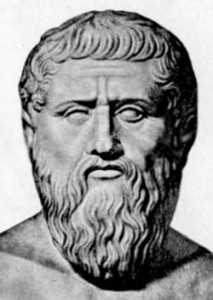Plato gets a bad rap in much of Christian theology these days for his supposed contribution to anthropological dualism, the view that te human person is composed of two distinct substances (soul–or spirit–and body).  This dualism is the cause, then, of the gnostic devaluation of the body in favor of the spiritual. I have been guilty of “blaming Plato” in the past. Diogenes Alen, is his brilliant work, Philosophy for Understanding Theology, offers an insightful counterpoint:
This dualism is the cause, then, of the gnostic devaluation of the body in favor of the spiritual. I have been guilty of “blaming Plato” in the past. Diogenes Alen, is his brilliant work, Philosophy for Understanding Theology, offers an insightful counterpoint:
If one…takes the Phaedo as definitive of Plato’s view of the soul, then it seems to make the emotions and desires not only subordinate but also nonessential to the nature of a human being. We are essentially reason or intelligence alone. We feel because we are in contact with something that is not essential to us, but our nature is that of a spiritual substance. This picture of Plato is quite common in Christian circles. It makes Plato seem simple at the price of gross misinterpretation and also makes him seem much more gnostic in his attitude toward the body than can be justified, if we give any weight at all to what he says about the soul in the Republic and the Phaedrus. In these works the soul (or person) is not only reason or nous. Emotions and appetites or desires have a rightful function in a person’s life. (35).
Now, Platonism clearly turned hard in the direction of a substance dualism, with the consequence of undervaluing the body (even hating the body). And Christianity picks some of this attitude up due to the influence of Plotinus and neo-Platonism upon early Christian thought. In many ways, like Humpty Dumpty’s soldiers, we are still trying to put the pieces of body and soul back together again. But Plato might have less to do with the splintering than the blame he’s often assigned.











